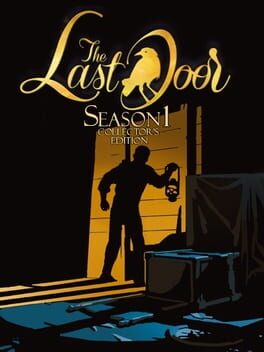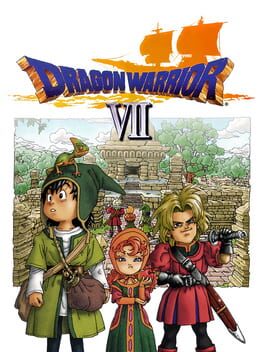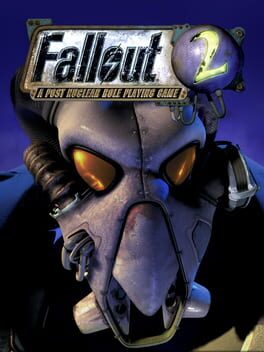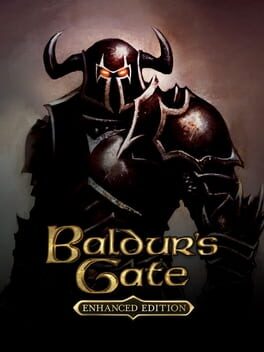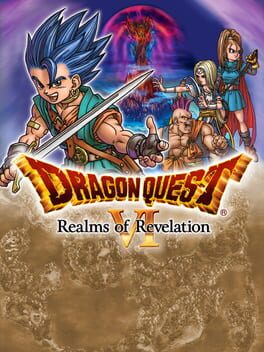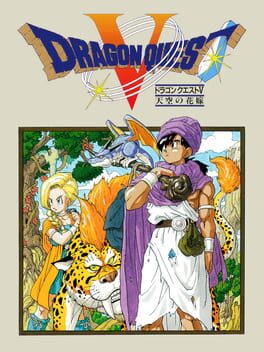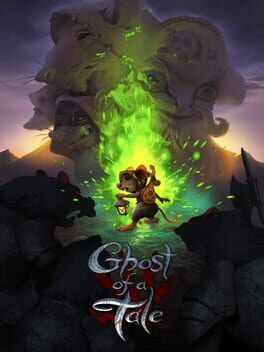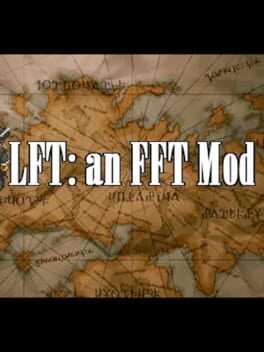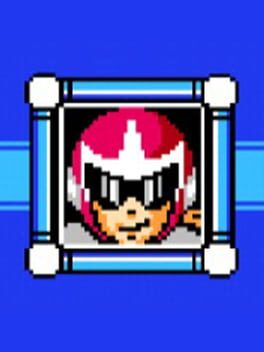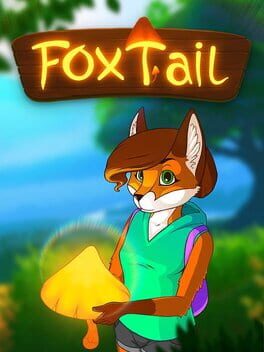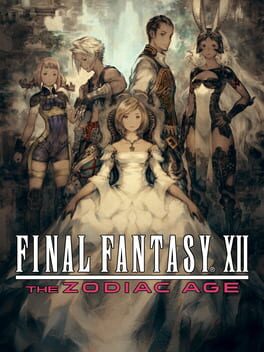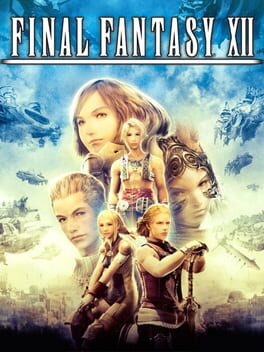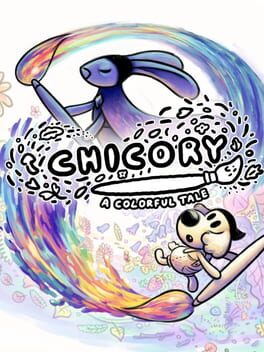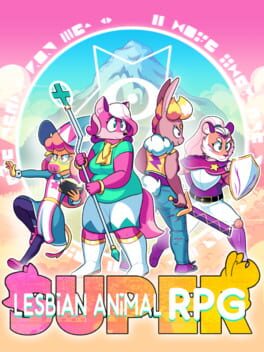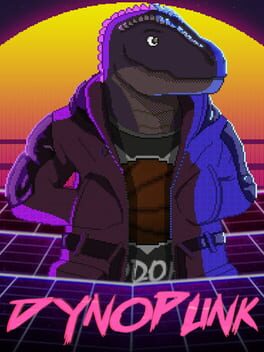DoubleCakes
2014
So this was a pretty good PnCA to revisit. The writing and atmosphere are peak. The game is pretty snappy with puzzles of moderate difficulty segmented very comfortably into episodes. When I first played this I was satisfied enough with the Lovecraftian narrative to not care for Season 2 but me now? I'm ready to check out how this story continues!
2000
I’m a sicko, so I prefer random encounters. That’s why I played the original PSX version over the 3DS remake. That three hour intro a lot to get through but once the game gets going, it’s very compulsive to play. This episodic approach to a JRPG story works well in the case of Dragon Quest VII. The writing (and localization) is pretty good although I think once the third act comes around and the story becomes more interconnected, my interest isn’t as strong.
The reason why someone would ought to play the 3DS version is that it’s easier to collect the Shards you need to unlock new parts of the game. I got lost a few times and had to consult a guide to find the missing Shard. I didn’t want to use the guide. There are a lot of locational abilities that don’t serve much purpose, like Smell which tells you how many treasures are still lingering but only on single maps. You are given a lot of abilities to navigate this game and they’re not very useful. Pamela is a fortune teller and she was never useful to finding Shards nor TinyMedals.
Obviously the star of the show is the class system, which is robust although I think the Monster Classes are superfluous and I wish there was more flexibility in builds since characters can pretty much either be strength-focused and pickup Warrior, Fighter, etc or they can be magic-focused and get Mage, Cleric etc.
I think the biggest knock against the class system, though, is how the game shuffled around its characters. You unlock the class system with three characters in the party, you journey with them a long time, and then the fourth member comes in grossly underdeveloped. Then one of the original characters is swapped out to be replaced with another underdeveloped hero. That one that swaps out only comes back late in the game so that’s only two characters that get a fair amount of time to grow as warriors.
Regardless of my complaints, I found this to be an exciting and engrossing RPG. I liked the challenge. I like the class system. The graphics and music are good. The story’s interesting although for how long this game is, the story is surprisingly basic. 100 hours on my completed save file with 70 hours clocked in on the emulator. I went back and finished the post-game (which involved me using cheats to unlock a lot of classes and speed up grind). The bonus stuff is pretty cool and having beaten the two bonus dungeons, I feel I can close the book on this legendary RPG.
The reason why someone would ought to play the 3DS version is that it’s easier to collect the Shards you need to unlock new parts of the game. I got lost a few times and had to consult a guide to find the missing Shard. I didn’t want to use the guide. There are a lot of locational abilities that don’t serve much purpose, like Smell which tells you how many treasures are still lingering but only on single maps. You are given a lot of abilities to navigate this game and they’re not very useful. Pamela is a fortune teller and she was never useful to finding Shards nor TinyMedals.
Obviously the star of the show is the class system, which is robust although I think the Monster Classes are superfluous and I wish there was more flexibility in builds since characters can pretty much either be strength-focused and pickup Warrior, Fighter, etc or they can be magic-focused and get Mage, Cleric etc.
I think the biggest knock against the class system, though, is how the game shuffled around its characters. You unlock the class system with three characters in the party, you journey with them a long time, and then the fourth member comes in grossly underdeveloped. Then one of the original characters is swapped out to be replaced with another underdeveloped hero. That one that swaps out only comes back late in the game so that’s only two characters that get a fair amount of time to grow as warriors.
Regardless of my complaints, I found this to be an exciting and engrossing RPG. I liked the challenge. I like the class system. The graphics and music are good. The story’s interesting although for how long this game is, the story is surprisingly basic. 100 hours on my completed save file with 70 hours clocked in on the emulator. I went back and finished the post-game (which involved me using cheats to unlock a lot of classes and speed up grind). The bonus stuff is pretty cool and having beaten the two bonus dungeons, I feel I can close the book on this legendary RPG.
1998
This game was the first western RPG I played and a favourite of the genre. That said, I was feeling the fatigue of playing this game for the fourth(?) time. It’s satisfying to shoot people in the eyes for 95% accuracy and critical them to death but big fights with a lot of different chess pieces take a lot of time with how everyone has to move around. Maybe that’s why I quit halfway through this playthrough, but even when I picked it back up I figured this would be the last time I played this game.
Unlike all the other times I played this game, I went for an evil character. Thing is, there’s a lot more things to do if you are trying to be the good guy and they’re usually more complex to. There are some cool things you can do if you go the evil route, but they are rare– even in this Restoration Patch that I installed. It’s also hard to keep a low karma rating when you come across so many evil gangs that will ambush you and you have to wipe them out to defend yourself.
There’s a lot of classic CRPG jank too like say you choose the wrong dialogue option and then a person turns hostile and then all their friends and neighbours turn hostile and suddenly you can’t talk to an NPC you need to thus locking you out of a quest. It’s the kind of game where you have you finger on the quicksave and quickload buttons a lot. If you drop important items, it’s possible to lose them forever. The mechanisms of Fallout 2 are very fragile. This is also a game where death is permanent including on your allies.
I’m complaining a lot about a game that I love quite a bit. Maybe I’m coming off Fallout 2 with a lot of frustration but it needs to be said that the game’s a vast RPG with lots of interest quests and rich mechanics. The character building is pretty good and the world is a joy to explore, even if a lot of the dialogue writing and humour doesn’t hold up well and would be outclassed by Fallout: New Vegas. If this playthrough was my last, I wish it would have been a more pleasant experience, but that can’t take away all the years of loving this game.
Unlike all the other times I played this game, I went for an evil character. Thing is, there’s a lot more things to do if you are trying to be the good guy and they’re usually more complex to. There are some cool things you can do if you go the evil route, but they are rare– even in this Restoration Patch that I installed. It’s also hard to keep a low karma rating when you come across so many evil gangs that will ambush you and you have to wipe them out to defend yourself.
There’s a lot of classic CRPG jank too like say you choose the wrong dialogue option and then a person turns hostile and then all their friends and neighbours turn hostile and suddenly you can’t talk to an NPC you need to thus locking you out of a quest. It’s the kind of game where you have you finger on the quicksave and quickload buttons a lot. If you drop important items, it’s possible to lose them forever. The mechanisms of Fallout 2 are very fragile. This is also a game where death is permanent including on your allies.
I’m complaining a lot about a game that I love quite a bit. Maybe I’m coming off Fallout 2 with a lot of frustration but it needs to be said that the game’s a vast RPG with lots of interest quests and rich mechanics. The character building is pretty good and the world is a joy to explore, even if a lot of the dialogue writing and humour doesn’t hold up well and would be outclassed by Fallout: New Vegas. If this playthrough was my last, I wish it would have been a more pleasant experience, but that can’t take away all the years of loving this game.
How many times have I started this game only to fall off within the first couple hours? How many non-starters? I’m pretty sure the count is in the double digits. I don’t care for the Forgotten Realms setting and this experience is a basic presentation of it. But that’s where I found inspiration: I rolled a character who is a POS so my antipathy for the setting matched his antipathy for the world. I roleplayed his misanthropy.
Now, that helped my motivation to journey through this world but that didn’t fix any of the mechanical issues with the game. For example, the fact that for every ten attacks I levelled against my enemies, only one of those hit. Even at the end of the game, most of my characters missed 2/3rds of the time. It’s so frustrating and the fact that attacks can be so brutal and combat could be so chaotic meant my characters died a lot and I made use of savescumming (and for some reason, quickload didn’t work right).
I didn’t make much use of macros or custom hotkeys so dealing with spell selection was finicky. Overall, a lot of locales and dungeons weren’t very exciting to explore and the quest design was basic. I didn’t care for the story either. The only “story” I felt something for was Dorn’s questline and Baeloth’s sass (both EE additions).
I didn’t like this game much, found it frustrating, but I am glad I played it. This is a piece of computer RPG history. This was the first game to notably adapt the DnD experience. I have my problems with the game mechanically but in terms of emulating the classic tabletop essence, this thing is feature complete.
Now, that helped my motivation to journey through this world but that didn’t fix any of the mechanical issues with the game. For example, the fact that for every ten attacks I levelled against my enemies, only one of those hit. Even at the end of the game, most of my characters missed 2/3rds of the time. It’s so frustrating and the fact that attacks can be so brutal and combat could be so chaotic meant my characters died a lot and I made use of savescumming (and for some reason, quickload didn’t work right).
I didn’t make much use of macros or custom hotkeys so dealing with spell selection was finicky. Overall, a lot of locales and dungeons weren’t very exciting to explore and the quest design was basic. I didn’t care for the story either. The only “story” I felt something for was Dorn’s questline and Baeloth’s sass (both EE additions).
I didn’t like this game much, found it frustrating, but I am glad I played it. This is a piece of computer RPG history. This was the first game to notably adapt the DnD experience. I have my problems with the game mechanically but in terms of emulating the classic tabletop essence, this thing is feature complete.
So I started this playthrough back in 2018, fell off for years, then picked it back up in 2020 or so and went through most of the rest of the game. Dragon Quest VI is weird because it's vignette-based and the main plot doesn't build its tension much so when I got to the last leg of the game, the Dreadworld, I didn't feel connected to the story and felt like I had seen enough. I quit knowing I was just a few steps from credits.
And I was okay with that but I don't like leaving playthroughs unfinished, especially if they are so close from the end (and even if I was playing on replaying this game anyway), so I paused my Dragon Quest VII run to close the book on this one and pushed out the last few chapters. I pride myself on my recent habit of finishing RPGs but any playthrough that has years worth of breaks in between– you're gonna lose the plot. Luckily finishing this game off wasn't too hard since I picked some great class progressions.
So what is the deal with Dragon Quest VI? I think its focus on vignette-based storytelling and having two large worlds to explore make it a little immemorable. There is too much game in this DQ6. Too many towns, too many vehicles. The real world/dream world plotline is overly complicated. I never got a good sense of how the two worlds work together.
That said, any game with a class system as robust as the one DQ6 has gets point for me. That sort of thing– picking classes and levelling them up– has great appeal and overall the Dragon Questiness of this journey is infectious and satisfying.
And I guess I am a little forgiving of this game's shortcomings because they were trying to do something different. Yeah, I prefer the tighter narrative of Dragon Quest V but Enix had already made that game so for the next one they went for something more open-ended and episodic. They might have not done a great job but overall I still think they made a pretty good game.
And I was okay with that but I don't like leaving playthroughs unfinished, especially if they are so close from the end (and even if I was playing on replaying this game anyway), so I paused my Dragon Quest VII run to close the book on this one and pushed out the last few chapters. I pride myself on my recent habit of finishing RPGs but any playthrough that has years worth of breaks in between– you're gonna lose the plot. Luckily finishing this game off wasn't too hard since I picked some great class progressions.
So what is the deal with Dragon Quest VI? I think its focus on vignette-based storytelling and having two large worlds to explore make it a little immemorable. There is too much game in this DQ6. Too many towns, too many vehicles. The real world/dream world plotline is overly complicated. I never got a good sense of how the two worlds work together.
That said, any game with a class system as robust as the one DQ6 has gets point for me. That sort of thing– picking classes and levelling them up– has great appeal and overall the Dragon Questiness of this journey is infectious and satisfying.
And I guess I am a little forgiving of this game's shortcomings because they were trying to do something different. Yeah, I prefer the tighter narrative of Dragon Quest V but Enix had already made that game so for the next one they went for something more open-ended and episodic. They might have not done a great job but overall I still think they made a pretty good game.
When it comes to an RPG adventure, I don't think much beats Dragon Quest V. That's not an evaluation of the game overall but a specification of its journey.
The scope of the story starting from Hero's childhood, into his teen and adult years, and then fast-forwarding to when his kids are grown up is really special and done very well. The world map is tightly designed with each new country/continent a thrill to explore and there are plenty of mysteries to discover and secrets to fine, even into the game's more open-ended third act. The story builds it tension and crescendos.
Because of it's exciting adventure, I cherish DQ5 even if the gameplay, at least in this Super Famicom version, isn't great. It's the same traditional JRPG gameplay but not as tight as later editions of the franchise and lacking the customization of later titles too. It's cool that there's stuff like the monster collecting but I found that lacking potential with the three party member limit that this first version of DQ5 possesses.
I beat the main game and cheated my way through the bonus dungeon to close the book on this SFC version of Dragon Quest V, a game I played back when I got into emulation as a teen and fell in love with, enough to adore the DS remake that would come my way years later. I like the graphics in this version more than the DS version but that version has four party members so when I want to replay this game again, I'll likely go for that version.
The scope of the story starting from Hero's childhood, into his teen and adult years, and then fast-forwarding to when his kids are grown up is really special and done very well. The world map is tightly designed with each new country/continent a thrill to explore and there are plenty of mysteries to discover and secrets to fine, even into the game's more open-ended third act. The story builds it tension and crescendos.
Because of it's exciting adventure, I cherish DQ5 even if the gameplay, at least in this Super Famicom version, isn't great. It's the same traditional JRPG gameplay but not as tight as later editions of the franchise and lacking the customization of later titles too. It's cool that there's stuff like the monster collecting but I found that lacking potential with the three party member limit that this first version of DQ5 possesses.
I beat the main game and cheated my way through the bonus dungeon to close the book on this SFC version of Dragon Quest V, a game I played back when I got into emulation as a teen and fell in love with, enough to adore the DS remake that would come my way years later. I like the graphics in this version more than the DS version but that version has four party members so when I want to replay this game again, I'll likely go for that version.
2018
I wanted to like this more than I did. It comes down that most of what you do in this game is not fun. Running around and dodging guards is not fun even if its in a very realized world– interconnected and gorgeously designed. The main plot wasn't very interesting even if the world-building and characters were pretty decent. Despite how cartoony some could be, they all felt like inhabitants of this world. The lore in this game is good.
There are other small things to praise, like the overall art is good but the profile graphics are very expressive and often quite cute. This game was mostly frustrating. The stealth is bad and doesn't evolve much past the first hour. This game might have my least favourite stamina system with a sprint that drains too fast and refills very slowly.
I don't know if this will ever get a sequel and I really want it to because I think a lot of the game's problems come from it being a developer's first try and a sequel would iron out the issues. It's been nearly six years, though.
There are other small things to praise, like the overall art is good but the profile graphics are very expressive and often quite cute. This game was mostly frustrating. The stealth is bad and doesn't evolve much past the first hour. This game might have my least favourite stamina system with a sprint that drains too fast and refills very slowly.
I don't know if this will ever get a sequel and I really want it to because I think a lot of the game's problems come from it being a developer's first try and a sequel would iron out the issues. It's been nearly six years, though.
I've been playing this one on and off for years now and I've gotten quite frustrated with how unpredictable an enemy's damage output can be. Sometimes an enemy (of equal level) would enter an encounter and rip me to shreds for no discernible reason.
I remember Final Fantasy Tactics being pretty lethal at times so maybe it's problem with the vanilla experience. FFT is a game I've beaten and a game I love so maybe revisiting it is not something I want to do.
I remember Final Fantasy Tactics being pretty lethal at times so maybe it's problem with the vanilla experience. FFT is a game I've beaten and a game I love so maybe revisiting it is not something I want to do.
Playing as Proto Man made me turn on this game. Taking double damage while not having the ability to buy more lives or E-tanks is too rough a challenge. The annoying boss in Wily's Stages really stood out with how hard the game is.
I used the Collection's save features to get through this game– saving up lives and E-tanks for the finale– and even then it was still rough. I wonder how tough it's going to be to finish MM10 with Proto Man?
EDIT: Looked it up and I already beat MM10 with Proto Man and I bet it wasn't nearly as difficult as this one!
I used the Collection's save features to get through this game– saving up lives and E-tanks for the finale– and even then it was still rough. I wonder how tough it's going to be to finish MM10 with Proto Man?
EDIT: Looked it up and I already beat MM10 with Proto Man and I bet it wasn't nearly as difficult as this one!
2018
FoxTail is an in-development point and click adventure and I've had a good time with it so far. The environments are pretty and the puzzles are engaging finding a balance between challenge without being too obvious.
The big downside of this game, and this is everywhere, is that the translation is very awkward. There are a lot of grammatical errors and it hurts the game's ability to convey personality and got me anxious about following clues to solve puzzles although I don't think the stilted prose ever misdirected me from a puzzle solution.
Characterization and theme still come across bits of the dialogue, though, so the game's story still has substance. My only problem beyond the awkwardness is that I don't think there's much depth to the narrative as of Chapter 3. The story feels like its setting up some deeper themes with the grandpa and various aspects of the world-building, but they've not come to light yet.
Chapter 3 is the highlight. The environment is enticing with its nighttime moods, the handful of characters you meet are cool and interesting, and the chapter crescendos on an open-ended puzzle that's a delight to break down and figure out. My playthrough ended on that chapter and I think it shone well over the whole project.
The big downside of this game, and this is everywhere, is that the translation is very awkward. There are a lot of grammatical errors and it hurts the game's ability to convey personality and got me anxious about following clues to solve puzzles although I don't think the stilted prose ever misdirected me from a puzzle solution.
Characterization and theme still come across bits of the dialogue, though, so the game's story still has substance. My only problem beyond the awkwardness is that I don't think there's much depth to the narrative as of Chapter 3. The story feels like its setting up some deeper themes with the grandpa and various aspects of the world-building, but they've not come to light yet.
Chapter 3 is the highlight. The environment is enticing with its nighttime moods, the handful of characters you meet are cool and interesting, and the chapter crescendos on an open-ended puzzle that's a delight to break down and figure out. My playthrough ended on that chapter and I think it shone well over the whole project.
After nearly twenty years of playing this game, I finished the post-game of Final Fantasy XII! Both the vanilla superbosses and the Trial Mode The Zodiac Age added in. I left a review on the PS2 game’s page but figured I’ll add my thoughts on The Zodiac Age version.
The big sell here is the job system and it’s pretty cool! I like the dual-classing upgraded they added in this edition of FF12, but character being so focused creates a lot of small inconveniences. Only the Time Mage has Float, a very important spell if you are going through a place with traps. I had to keep my Fran out through most dungeons because I didn’t have a lot of Float Motes and mines were abound. You can unlock some extra abilities on everyone’s License Grids with Quickenings and Espers but there should have been more options available for late game conveniences. I was missing the absolute freedom of everyone sharing vanilla FF12’s maximalist License Grid.
While The Zodiac Age took away a lot of original’s need-guide BS like the whole thing with the Zodiac Spear, a lot of spells are stuck in normal-looking treasures that you can easily miss then go through the whole game never having that spell. It’s two steps-forward, one step back with this game.
The 2x and 4x speed settings were a great edition. Got a lot of use of them beating Hell Wyrm and Yiazmat. On the other hand, TZA could have improved the gambit system more. While the multiple gambit sets are a nice addition, I wished for more gambit types and additional complexity.
Overall, the speedup option and cool job system make this the definitive version of a game that I, despite my criticism, think it is pretty good and still love a lot. Maybe I don’t think it’s as good as I used to, but still something that is worth playing. A lot of my problems are things that became more obvious in the sidequest/post-game parts of Final Fantasy XII: The Zodiac Age so someone playing a casual playthrough probably wouldn’t butt heads with those annoyances.
The big sell here is the job system and it’s pretty cool! I like the dual-classing upgraded they added in this edition of FF12, but character being so focused creates a lot of small inconveniences. Only the Time Mage has Float, a very important spell if you are going through a place with traps. I had to keep my Fran out through most dungeons because I didn’t have a lot of Float Motes and mines were abound. You can unlock some extra abilities on everyone’s License Grids with Quickenings and Espers but there should have been more options available for late game conveniences. I was missing the absolute freedom of everyone sharing vanilla FF12’s maximalist License Grid.
While The Zodiac Age took away a lot of original’s need-guide BS like the whole thing with the Zodiac Spear, a lot of spells are stuck in normal-looking treasures that you can easily miss then go through the whole game never having that spell. It’s two steps-forward, one step back with this game.
The 2x and 4x speed settings were a great edition. Got a lot of use of them beating Hell Wyrm and Yiazmat. On the other hand, TZA could have improved the gambit system more. While the multiple gambit sets are a nice addition, I wished for more gambit types and additional complexity.
Overall, the speedup option and cool job system make this the definitive version of a game that I, despite my criticism, think it is pretty good and still love a lot. Maybe I don’t think it’s as good as I used to, but still something that is worth playing. A lot of my problems are things that became more obvious in the sidequest/post-game parts of Final Fantasy XII: The Zodiac Age so someone playing a casual playthrough probably wouldn’t butt heads with those annoyances.
2006
Final Fantasy XII is one of my favourite games. Top 50 material, likely. But this latest exhaustive playthrough of The Zodiac Age has allowed me to deeply contemplate the problem with FF12’s systems– stuff that’s present in the original and TZA.
For example (and this is an obvious problem) the game’s dripfeed of reward for sidequests and hunts is really discouraging. Most of the benefit that comes from doing them is the EXP, LP and gil you obtain by travelling across the world and beating enemies along the way. The main path’s enemy strength grows pretty quickly so doing the bonus stuff is pretty mandatory but completing a single sidequest should have a bigger jump in strength. It’s just annoying how much stuff you get that’s trash. Even in the post-game I was opening treasure chests and getting Dark Motes or receiving Hi-Potions from the fishing minigame. Most of the gil payouts are pretty stingy, too.
The gambit system, although relatively functional and innovative for 2006, has a lot of holes in its command set, stuff like how you can’t program a character to steal only from enemies that haven’t been stolen from yet. It got pretty annoying to go back into the gambit menu again and again, too. There should have been more ways to copy and reuse gambits too. There’s a lot of things you do in menus and that’s especially exhaustive when the menus themselves have this sluggishness to them, adding a couple frames to every button click. Even if the original was held back by the hardware, that doesn’t make it less annoying nowadays.
It’s also a big problem how some items cannot be purchased (or in the case of the Serum consumable, purchasable only in one obscure place). I had millions of gil at the end of the game and although I wanted to spend on Elixirs and Megalixirs, you cannot.
Getting into presentation stuff, the story is a very streamlined political drama with some nuance especially around the character of Vayne. Special shoutout to Ivalice. Oh, Ivalice. What a beautiful world! It’s so rich and realized that I’ll read NPC dialogue just to get another detail of this world. Easily my favourite fictional setting. It’s helped by Sakimoto’s score which is perfect for this world.
The game is vast. There are so many details in the locations and enemies, giving these places more description than your usual RPG fare. Even if they don’t give the best rewards, I’ve always loved how many small sidequests that you can just miss. This playthrough was the first time I did anything with that fishing sidequest. I kinda love it. This was before JRPGs imported Elder Scrolls-style quest logs so the fact that those mini-quests don’t call out to you makes them feel less gamey and helps the world feel alive.
I guess that’s a good note to go out on. Even if this game has problems, the world of Ivalice, or specifically this incarnation of it, is astonishing and so easy to get lost in.
For example (and this is an obvious problem) the game’s dripfeed of reward for sidequests and hunts is really discouraging. Most of the benefit that comes from doing them is the EXP, LP and gil you obtain by travelling across the world and beating enemies along the way. The main path’s enemy strength grows pretty quickly so doing the bonus stuff is pretty mandatory but completing a single sidequest should have a bigger jump in strength. It’s just annoying how much stuff you get that’s trash. Even in the post-game I was opening treasure chests and getting Dark Motes or receiving Hi-Potions from the fishing minigame. Most of the gil payouts are pretty stingy, too.
The gambit system, although relatively functional and innovative for 2006, has a lot of holes in its command set, stuff like how you can’t program a character to steal only from enemies that haven’t been stolen from yet. It got pretty annoying to go back into the gambit menu again and again, too. There should have been more ways to copy and reuse gambits too. There’s a lot of things you do in menus and that’s especially exhaustive when the menus themselves have this sluggishness to them, adding a couple frames to every button click. Even if the original was held back by the hardware, that doesn’t make it less annoying nowadays.
It’s also a big problem how some items cannot be purchased (or in the case of the Serum consumable, purchasable only in one obscure place). I had millions of gil at the end of the game and although I wanted to spend on Elixirs and Megalixirs, you cannot.
Getting into presentation stuff, the story is a very streamlined political drama with some nuance especially around the character of Vayne. Special shoutout to Ivalice. Oh, Ivalice. What a beautiful world! It’s so rich and realized that I’ll read NPC dialogue just to get another detail of this world. Easily my favourite fictional setting. It’s helped by Sakimoto’s score which is perfect for this world.
The game is vast. There are so many details in the locations and enemies, giving these places more description than your usual RPG fare. Even if they don’t give the best rewards, I’ve always loved how many small sidequests that you can just miss. This playthrough was the first time I did anything with that fishing sidequest. I kinda love it. This was before JRPGs imported Elder Scrolls-style quest logs so the fact that those mini-quests don’t call out to you makes them feel less gamey and helps the world feel alive.
I guess that’s a good note to go out on. Even if this game has problems, the world of Ivalice, or specifically this incarnation of it, is astonishing and so easy to get lost in.
A really fun exploration/puzzle game that allows the player to express themself in completely arbitrary ways like how I would paint environments simply to give them some colour. Exploring this world and finding secrets was a joy and all the little critters you get to meet were wonderful!
I didn't care for the player character's arc (their name was 'Pizza' in my case). There isn't much substance to their problems with confidence. I don't think a lack of confidence is very fruitful grounds thematically no matter which story is being told, although I'd be happy to be proven wrong. Pizza walked around and complained about their insecurities and I never felt much for them.
Most of the story came from walking around, talking to people, meeting all sorts of cool personalities and having a lot of spontaneous character moments when I'd see locals gathering at a beach party I set up or them lining up outside a pizza shop I designed the logo for.
I guess that what makes the game special for me is that the world and its inhabitants are very alive. Although a very basic game primarily, there was a lot of dynamic interactions to be found.
I didn't care for the player character's arc (their name was 'Pizza' in my case). There isn't much substance to their problems with confidence. I don't think a lack of confidence is very fruitful grounds thematically no matter which story is being told, although I'd be happy to be proven wrong. Pizza walked around and complained about their insecurities and I never felt much for them.
Most of the story came from walking around, talking to people, meeting all sorts of cool personalities and having a lot of spontaneous character moments when I'd see locals gathering at a beach party I set up or them lining up outside a pizza shop I designed the logo for.
I guess that what makes the game special for me is that the world and its inhabitants are very alive. Although a very basic game primarily, there was a lot of dynamic interactions to be found.
I’ve never been a lesbian, nor have I been an animal, and a lesbian animal? Not even once. But video games allow us to experience different lives so I played Super Lesbian Animal RPG.
This is a turn-based RPG that feels inspired by the breadth of the Mario outings in the genre with SLARPG’s interlinking world in which character abilities are necessary to surpass some obstacles. It’s simple but it brings an interactive element that reminds me of Paper Mario or Mario & Luigi. It helps that the game’s aesthetics and music are realized in a way that a Nintendo game would do. These environments and characters are delightful to look at it and music is top-notch.
Overall, though, I liked this game but did not love it and I think that’s because I have trouble with the writing and storytelling. I didn’t resonate with Melody’s lack of confidence because I didn’t think there enough drama to be a compelling character arc. I also take issue with the scale of the main conflict compared to the smallness of the game world. There was a disconnect there.
Even if I don’t think it comes together well, I appreciate this game for having moments of emotional harshness because I’ve played a lot of indie games that felt afraid to hurt its characters. Characterization was strong in which most characters had a distinct personality that carries in all their interactions. There were also a lot of good individual moments in the writing and in general.
This is a game with a lot of ideas on display– most of them manifesting as jokes like a recurring enemy you can encounter in battles later on being an NPC in town. There’s a lot of neat tricks and this short game is packed with them which compensates for the game’s typical character building and combat, which is standard turn-based fare.
This game didn’t blow me away, but it did teach me a lot. It taught me that if, one day, I woke up as a lesbian animal maybe… I’d survive.
This is a turn-based RPG that feels inspired by the breadth of the Mario outings in the genre with SLARPG’s interlinking world in which character abilities are necessary to surpass some obstacles. It’s simple but it brings an interactive element that reminds me of Paper Mario or Mario & Luigi. It helps that the game’s aesthetics and music are realized in a way that a Nintendo game would do. These environments and characters are delightful to look at it and music is top-notch.
Overall, though, I liked this game but did not love it and I think that’s because I have trouble with the writing and storytelling. I didn’t resonate with Melody’s lack of confidence because I didn’t think there enough drama to be a compelling character arc. I also take issue with the scale of the main conflict compared to the smallness of the game world. There was a disconnect there.
Even if I don’t think it comes together well, I appreciate this game for having moments of emotional harshness because I’ve played a lot of indie games that felt afraid to hurt its characters. Characterization was strong in which most characters had a distinct personality that carries in all their interactions. There were also a lot of good individual moments in the writing and in general.
This is a game with a lot of ideas on display– most of them manifesting as jokes like a recurring enemy you can encounter in battles later on being an NPC in town. There’s a lot of neat tricks and this short game is packed with them which compensates for the game’s typical character building and combat, which is standard turn-based fare.
This game didn’t blow me away, but it did teach me a lot. It taught me that if, one day, I woke up as a lesbian animal maybe… I’d survive.
2023
This was a pretty decent. There's a variety in the mechanics, the characters are fascinating, and the music is both solid and numerous touching onto multiple genres like lo-fi hip hop, metal, and RnB.
This game is not much more than the sum of its parts, unfortunately. While the game juggles multiple plots, they don't interact very dynamically. The writing was awkward (like the characters using the term 'legend' to describe a cover story), although I liked when the story mused about the trials of people chasing their dreams and how ambiguous that can be.
So as someone who doesn't play a lot of visual novels, I enjoyed this game. It was cozy with it's repair shop atmosphere. I am confused why only a few characters had tails though. Most don't have tails. Frankly, that's criminal.
This game is not much more than the sum of its parts, unfortunately. While the game juggles multiple plots, they don't interact very dynamically. The writing was awkward (like the characters using the term 'legend' to describe a cover story), although I liked when the story mused about the trials of people chasing their dreams and how ambiguous that can be.
So as someone who doesn't play a lot of visual novels, I enjoyed this game. It was cozy with it's repair shop atmosphere. I am confused why only a few characters had tails though. Most don't have tails. Frankly, that's criminal.
